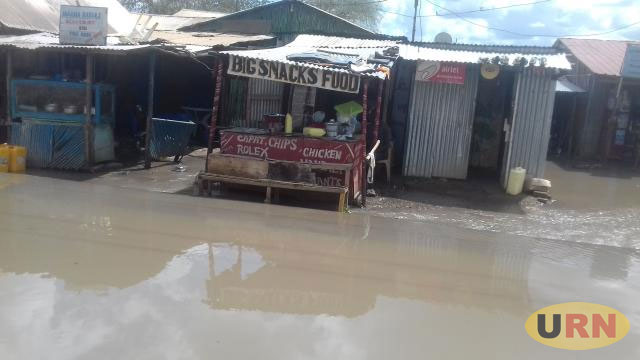
Amuru, Uganda | THE INDEPENDENT | Authorities in Amuru district have issued directives for the immediate closure of all unhygienic facilities at Elegu Town Council at the Uganda-South Sudan border point amidst a surge in cases of cholera.
Health officials over the weekend revealed the cumulative cholera cases (suspected, probable, and confirmed cases) had risen to 63 ever since a suspected case was first registered on July 1 in Loriko West village. Forty seven of them are cumulative Cholera Rapid Diagnostic Test (RDT)-positive cases, out of which eight are children below 12 years.
Geoffrey Osborn Oceng, the Amuru Resident District Commissioner, told Uganda Radio Network over the weekend that poor sanitation remains a major challenge weighing down the effective fight against the disease in Elegi Town Council.
Oceng noted that the problem is exacerbated by the low latrine coverage amidst a high population, which has seen people still practicing open defecation, leading to contamination of water sources.
According to him, the town council officials at Elegu and the district health inspector have since been directed to start closing down all facilities that don’t meet standard health requirements and pose risks of increasing cholera spread.
He also pointed out that the limited number of health workers at Bibia Health Center III is affecting the effective handling of the patients being referred for medical treatment, adding that the Chief Administrative Officer has been notified to reinforce the staff level.
Robert Onekalit, the District Surveillance Focal Person, in a July 10 cholera situation report, attributed the rise in the cases to a number of factors among them poor waste management and cross-border business activities. Others, he noted, were due to the high congestion at Elegu Town Council housing units and the failure by private health facilities to report suspected cases to health authorities.
Onekalit highlighted the gaps affecting the effective fight against cholera, citing limited funds to support community engagement activities and outreach and knowledge gaps among the community members to enhance early community detection and referrals.
So far the Rapid Response Team (RRT) has held meetings with private clinics and drug shop owners operating in Elegu Town Council and sensitized over 200 restaurant owners, mostly women, in Pabbo Subcounty about cholera.
John Idra Kovuki, the LCIII Chairperson of Elegu Town Council, has, however, called for the urgent intervention of the government to curb the situation that may soon spiral out of hand. Kovuki said the state of sanitation is alarming within the town council, a factor that could further escalate the cases of cholera if not addressed.
According to him, the town council leadership is set to hold an engagement with school head teachers, local leaders, and religious leaders within Elegu Town Council to come up with a comprehensive approach to combatting not only waste but also the spread of cholera.
By July 10, a total of 30 households had been visited by health officials in Elegu Town Council, and 72 contacts were listed within the district. Currently, four people remain admitted for treatment at the isolation unit at Bibia Health Center III.
***
URN
 The Independent Uganda: You get the Truth we Pay the Price
The Independent Uganda: You get the Truth we Pay the Price



